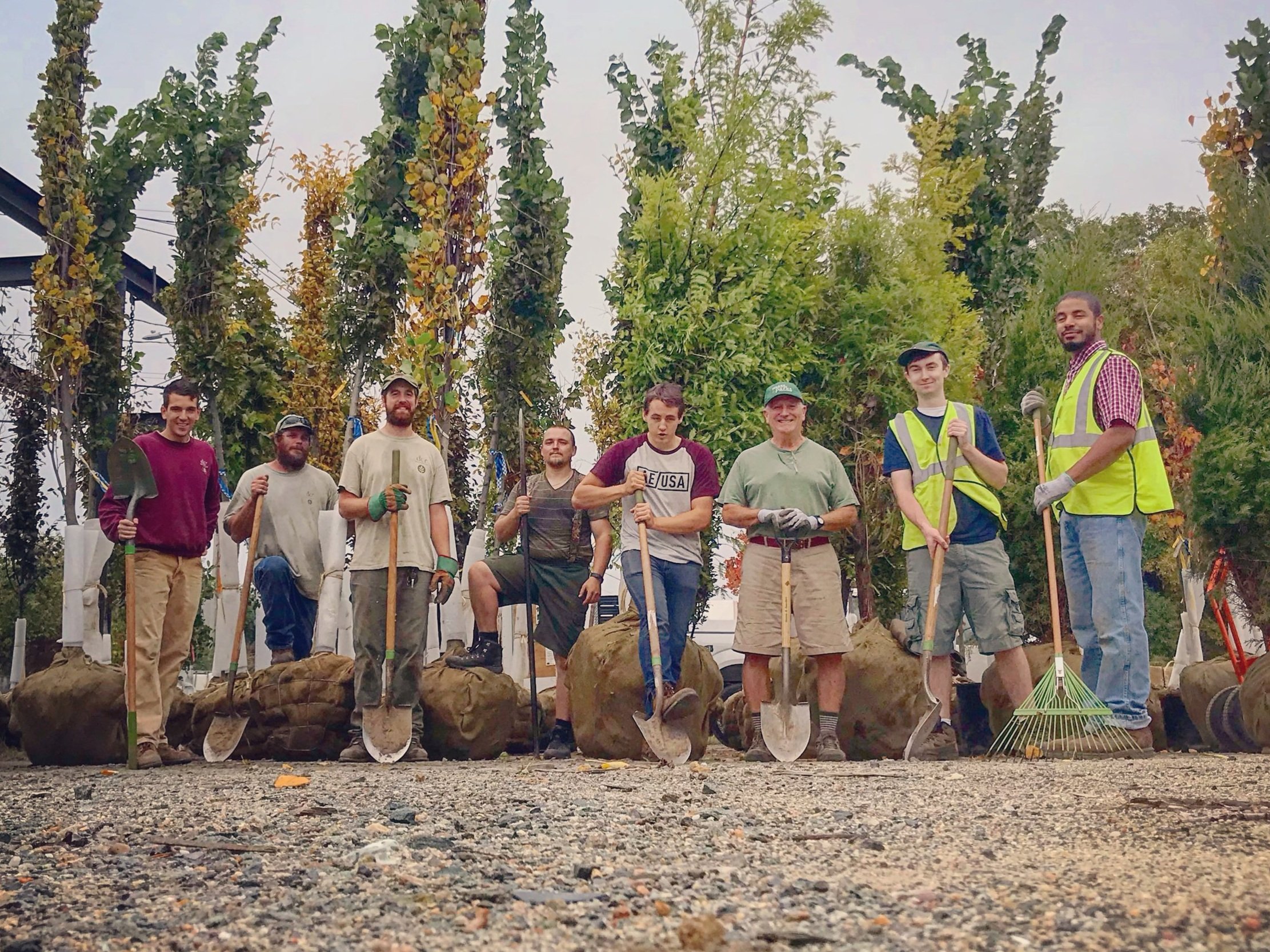By Thomas Patti, Communications Coordinator
On July 26, the Commonwealth of Massachusetts awarded Wildlands Trust $52,300 through the Greening the Gateway Cities Program (GGCP) to advance urban tree planting in Taunton and Brockton, two of the largest Environmental Justice communities in Southeastern Massachusetts.
The award marks the sixth time Wildlands has received funds through GGCP, but the first time for work in Taunton. From 2017 to 2021, Wildlands conducted outreach in Brockton through the program.
“GGCP is a win-win-win for urban landowners and communities, especially in the face of climate change,” said Wildlands Chief of Staff Rachel Bruce. “As the program outreach partner in Taunton and Brockton, we're thrilled for the continued opportunity to improve quality of life in some of the most densely populated areas of Southeastern Massachusetts."
Community tree planting as part of the GGCP in Brockton.
GGCP is “an environmental and energy efficiency program designed to reduce household heating and cooling energy use by increasing tree canopy cover in urban residential areas in the state’s Gateway Cities,” according to the Massachusetts Department of Conservation & Recreation (DCR).
Through the program, state and local foresters plant trees in high-priority neighborhoods, defined by socioeconomic status, existing tree cover, housing stock age, population size, and other variables. Beyond energy savings, GGCP aims to unlock other key benefits of urban tree planting, such as local employment, improved water and air quality, and a greater sense of community. GGCP is a partnership between DCR, the Executive Office of Energy and Environmental Affairs (EEA), and Gateway Cities and local grassroots organizations.
Wildlands’ award comes via GGCP’s Non-Profit Partnership Grant Program, which funds non-profits to conduct outreach to residents and business owners interested in receiving free trees from the program. Our outreach efforts will include in-person community engagement, recruiting and training tree maintenance volunteers, and distributing print and digital materials to educate the public about GGCP and the diverse benefits of urban tree planting.
Brockton is a Tree City USA thanks in part to GGCP tree-planting efforts.
“Expanding our forest canopy is one piece of the larger puzzle to combatting climate change in Massachusetts,” said EEA Secretary Rebecca Tepper in a press release. “With continuous heat waves leading to higher energy bills and greater greenhouse gas emissions, our Greening the Gateway Cities Program leverages our state resources and engages residents to help plant trees and enhance public health. Reducing the urban heat island effect is a top priority, and our non-profit partnerships through the GGCP will help cool our neighborhoods, towns, and cities.”
In 2023, with funding from NOAA, Wildlands and Manomet Conservation Sciences worked with the City of Brockton and Towns of Avon and Abington to test the urban heat island effect in the Brockton area, finding that temperatures differed between tree-shaded and exposed paved areas by up to 13° on a single July afternoon. Planting trees in highly developed areas is key to leveling the playing field in Environmental Justice communities that already suffer disproportionately from climate change. Besides reducing energy costs and protecting public health from intensifying heat waves, denser tree canopies reduce flooding and improve water quality by absorbing and filtering stormwater runoff.
GGCP crew delivering free trees to the Brockton community.
Wildlands thanks the Commonwealth of Massachusetts for its continued confidence in and support of our efforts to advance environmental justice throughout our service region.
We will begin outreach this fall in Taunton and this winter in Brockton. Stay tuned for updates as our work continues!









